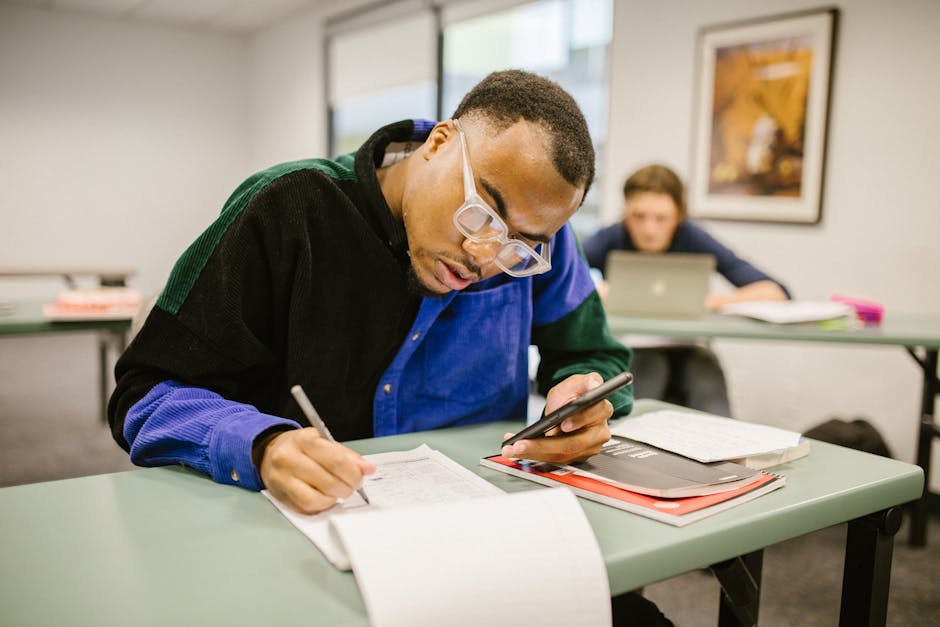Study Techniques for Standardized Test Success
Are you gearing up for a big test? Standardized tests can feel overwhelming. But with the right study techniques, you can boost your confidence and improve your scores. Lets explore some effective strategies that can help you ace those exams.
What Study Techniques Work Best?

Different techniques work for different people. However, here are some proven methods to make your study time more effective:
- Active Learning
- Practice Tests
- Mind Mapping
- Chunking Information
By using these techniques, you can engage with the material in a way that sticks. Lets dive deeper into each one.
How Does Active Learning Help?

Active learning means you’re not just reading or listening. You’re doing something with the information. This could be summarizing notes, teaching someone else, or discussing the material in a study group.
Research shows that students who engage actively with content retain more information. For example, instead of just reading a chapter, try to explain it to a friend. This technique helps you identify what you truly understand and what needs more work.
Why Should You Take Practice Tests?

Practice tests are like a dress rehearsal for the big day. They familiarize you with the test format and types of questions you will encounter. They also help you manage your time effectively.
Heres how to use practice tests effectively:
- Set a timer to mimic actual test conditions.
- Review your answers, especially the ones you got wrong.
- Repeat until you feel comfortable.
According to a study by the Educational Testing Service, students who practice with tests perform better. So, don’t skip this step!
What is Mind Mapping?

Mind mapping is a visual way to organize information. It helps you see connections between concepts. This is especially useful for subjects like science or history where details interlink.
To create a mind map, start with a central idea in the middle of a page. From there, draw branches for related topics. Add notes, keywords, or images that help explain those ideas. This technique can make studying feel less like a chore and more creative.
How Does Chunking Information Work?
Chunking is breaking down information into smaller, manageable pieces. Think of it like organizing a messy closet. Instead of tackling everything at once, focus on one section at a time.
For example, if you’re studying for a math test, break down formulas into categories. Learn one category well before moving on to the next. This method reduces stress and makes it easier to remember.
How Important is Time Management?
Effective study techniques also include smart time management. You don’t want to cram the night before the test. Instead, create a study schedule that spreads out your learning.
Heres how to manage your time:
- Set specific study goals for each session.
- Use a planner to track your progress.
- Take breaks to refresh your mind.
Studies show that breaking study time into chunks increases retention. Try the Pomodoro Technique: study for 25 minutes, then take a 5-minute break. it’s a simple way to keep your brain sharp!
What Role Does a Positive Mindset Play?
Your mindset matters. A positive attitude can transform your study experience. Instead of thinking I can’t do this, try I’m learning and improving. This shift can reduce anxiety and boost motivation.
One way to maintain a positive mindset is through affirmations. Repeat phrases like I am capable or I am prepared to build confidence. Youll be surprised at how powerful your thoughts can be!
How Can You Use Study Groups Effectively?
Study groups can be super helpful. Working with others allows you to share ideas and clarify doubts. Plus, explaining concepts to peers reinforces your understanding.
Here are tips for successful study groups:
- Choose members who are focused and want to learn.
- Set clear goals for each session.
- Rotate who leads the discussion.
A study group can turn studying into a fun activity rather than a lonely chore. Just remember to stay on topic!
What Tools Can Help You Study?
Today, technology offers plenty of tools to enhance your studying. Apps and websites can make learning interactive and engaging. Here are a few you might consider:
- Anki: A flashcard app that uses spaced repetition.
- Khan Academy: Free lessons on a variety of subjects.
- Quizlet: Create and share flashcards and quizzes.
These tools can make studying more enjoyable and effective. Choose ones that match your learning style!
How Do You Stay Healthy While Studying?
Your brain works best when your body is healthy. Remember to eat well, sleep enough, and exercise regularly. Nutrition fuels your brain, and a good nights sleep helps with memory retention.
Heres a quick health checklist to keep you on track:
- Eat balanced meals with plenty of fruits and veggies.
- Stay hydrated by drinking water.
- Get at least 7-8 hours of sleep each night.
Taking care of your body can improve your focus and stamina during study sessions.
How Can You Overcome Test Anxiety?
Many students experience test anxiety. it’s normal to feel nervous before a big test. However, there are ways to manage that anxiety.
Here are some effective strategies:
- Practice relaxation techniques like deep breathing.
- Visualize success by imagining yourself doing well.
- Prepare thoroughly to feel more confident.
Remember, a little anxiety can be good. It shows you care about your performance. But learning to manage it is key for success.
What Should You Do on Test Day?
The day of the test is crucial. Preparation doesnt stop the night before. Heres how to ensure you’re ready:
- Get a good nights sleep.
- Eat a healthy breakfast to fuel your brain.
- Arrive early to avoid last-minute stress.
On test day, stay calm and focused. Trust your preparation and give it your best shot!
Conclusion: What Are Your Next Steps?
Now you have a toolbox of study techniques for standardized test success. Remember to engage actively, practice regularly, and manage your time wisely. With the right approach, you can turn those nerves into excitement.
Start planning your study schedule today! Whether you prefer mind mapping or joining a study group, the key is to find what works best for you.
Want more tips on studying? Check out our post on effective study strategies.
Good luck, and remember, youve got this!


